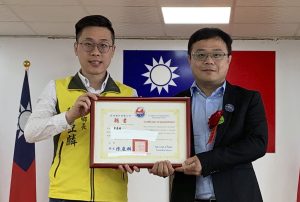Taiwanese human rights advocate Lee Ming-che returned to Taiwan last month after five years in Chinese jails. Lee had been detained on charges of “subverting state power,” primarily due to online exchanges with Chinese friends about Taiwan’s experiences of democratization. This included holding weekly online lectures conducted by WeChat about democracy and transitional justice. Lee was detained in March 2017 after he entered China through Macau.
But since Lee’s return, news has emerged that another Taiwanese detained in China, Morrison Lee Meng-chu, was in fact released from detention last year but has not been allowed to return to Taiwan. Morrison Lee, a businessman, was sentenced to one year and 10 months in jail on spying charges, as well as two years of having his rights to political participation deprived.
Morrison Lee’s detention in China was first reported in September 2019, though Shenzhen authorities initially denied having him in their custody. Lee entered China via Shenzhen after having participated in some of the mass protests that took place in Hong Kong in 2019, originally in response to an extradition bill that the Hong Kong government intended to pass that would have allowed for extraditions to China. Lee had photos of the protests on his phone when he entered China.
Likewise, Lee took photos of Chinese military vehicles in Shenzhen and sent them to friends. At the time, it was feared that Chinese military vehicles and paramilitary forces amassed in Shenzhen were for an imminent crackdown on protests in Hong Kong.
It is not impossible that either action of Lee’s led him to fall afoul of Chinese authorities. Lee’s detention took place around the same time as the detention and alleged torture of Hong Kong British consulate worker Simon Cheng and may have similarly been intended as an act of intimidation.
When Lee was detained, the Chinese government was asserting that it had captured over 100 Taiwanese spies. This was part of an attempt to suggest that the Hong Kong protests had been incited by foreign infiltrators, including Western forces as well as Taiwan. As part of efforts to create this narrative, Morrison Lee later appeared on Chinese television to make a public confession that was likely forced.
The Tsai administration has dismissed China’s claims to have captured 100-plus Taiwanese spies. Although the precise number of Taiwanese held by the Chinese government on political charges is unknown, it is improbable that the detention of 100 or more Taiwanese would have escaped notice.
The Taiwanese government claims that it was aware of Lee’s release and has sought to provide assistance. A report from state-run Central News Agency suggests that the Taiwanese government sought to keep a low profile regarding Lee’s release and hoped it would not be reported on by media before Lee Ming-che’s return to Taiwan, for fear that it would have affected his release. The same report suggests that the Tsai administration views Lee Ming-che and Morrison Lee as very different cases.
Before Lee Ming-che’s release and eventual return to Taiwan, civil society groups that had campaigned for his release warned that he could be prevented from returning to Taiwan because Chinese courts had deprived him of his rights to political participation. Although this did not prevent Lee Ming-che from returning to Taiwan, evidently this has been the case with Morrison Lee.
Indeed, after news that Morrison Lee was being prevented from returning to Taiwan broke, China’s Taiwan Affairs Office confirmed that Lee was serving “additional charges” in China.
Normally, foreigners are deported after serving jail sentences in China, seeing as they do not have rights to political participation. Yet it is less clear what would happen in the case of Taiwanese, Hong Kongers, or individuals from Macau, for which there are fewer precedents.
Consequently, Morrison Lee’s case sets a precedent for Taiwanese serving jail sentences in China being prevented from returning to Taiwan even after the end of their terms. This could affect other Taiwanese who are currently detained on political charges in China, such as academics Tsai Jin-shu and Shih Cheng-pin, who were detained despite both being members of the pan-Blue camp. This precedent could also affect Taiwanese detained in China on other charges, such as individuals that may have committed crimes while in China.
Most cases of Taiwanese detained in China on political charges were reported in late 2019, in a political context very much shaped by the Hong Kong protests. But the detention of Morrison Lee points to the complexities involved in cross-strait detentions, particularly with regard to new legal precedents set by the Chinese government.
This has been something that the Tsai administration has been cautious of in the past. The proposed extradition bill that led to the Hong Kong protests was in response to a case in which Hong Konger, Chan Tong-kai, allegedly killed his girlfriend, fellow Hong Konger Poon Hiu-wing, while the two were vacationing in Taiwan. Hong Kong’s lack of an extradition treaty with Taiwan meant there was no legal channel to send Chan to Taiwan to face charges. This was the Hong Kong government’s stated rationale for its proposed extradition bill, which led to the mass protests.
Since then, the Hong Kong government has claimed that Chan Tong-kai, after his release from prison in Hong Kong, was willing to voluntarily turn himself over to Taiwan to face charges.
However, the Tsai administration warned that China may have been seeking to set a precedent for individuals “voluntarily” turning themselves in to face charges and refused to accept Chan unless it was able to take him into custody in Hong Kong. President Tsai Ing-wen herself, a lawyer by training, weighed in on the matter personally. The Tsai administration may be broadly cautious of China setting precedents for cross-strait detentions or regarding cross-strait crime cases, for fear that this would be used to target Taiwanese in China.

































